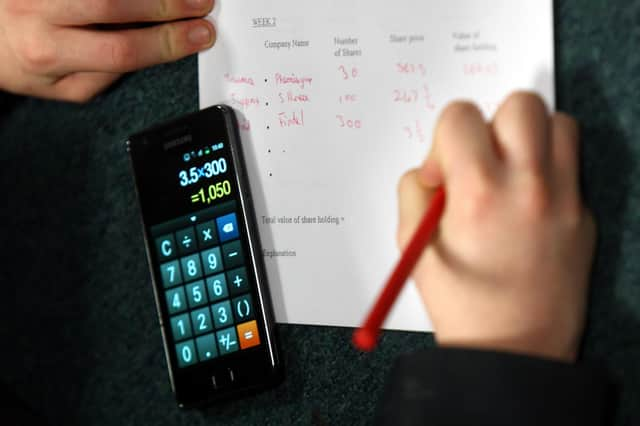Hundreds of children home-schooled in St Helens – as figures suggest national rise


Hundreds of St Helens children were educated at home in the last academic year, figures show.
Data suggests the number of home-schooled children has increased since the coronavirus pandemic across England, although figures are incomplete.
Advertisement
Hide AdAdvertisement
Hide AdDepartment for Education statistics show around 250 children were voluntarily taught at home in St Helens in the 2022-23 summer term.
Across the country, around 97,600 children were home-schooled. Separate figures from the Office of the Schools Adjudicator suggest there were 60,500 in March 2019.
But it appears Covid is not behind the rise – the largest reason for children being withdrawn from schools was for philosophical reasons, of which 15,800 parents had chosen to do so.
In St Helens, most commonly parents opted to home-school their children for mental health reasons, with around 60 children doing so. The reasons for home schooling were not known in 32% of cases.
Advertisement
Hide AdAdvertisement
Hide AdThe same was true for many other parts of the country, with 12,200 children taught at home for their mental health across England.
Olly Parker, head of external affairs at children's charity Young Minds, said schools "can and should be supportive environments for young people".
However, he warned "anxiety, bullying, academic pressure, difficult relationships and a lack of support" can lead to some children avoiding school.
Mr Parker added: "Young people should be able to access support for their mental health when they need it, including in schools.
Advertisement
Hide AdAdvertisement
Hide Ad"Currently, mental health support in schools is a postcode lottery and the Government must commit to ensuring young people can access support in every school in the country."
The data also shows older children are more likely to be taught at home across England – in St Helens, 76% were in secondary school, compared to 28% in primary.
Geoff Barton, general secretary of the Association of School and College Leaders, said home education is a "big undertaking" and parents should think very carefully before taking their child out of school.
He said schools have very robust policies on bullying and take the safeguarding of pupils extremely seriously, and encouraged parents to work through issues with schools.
He added while home school seems to have increased, we do not know the definitive figures as the Government has not introduced a register.
RESPONSE